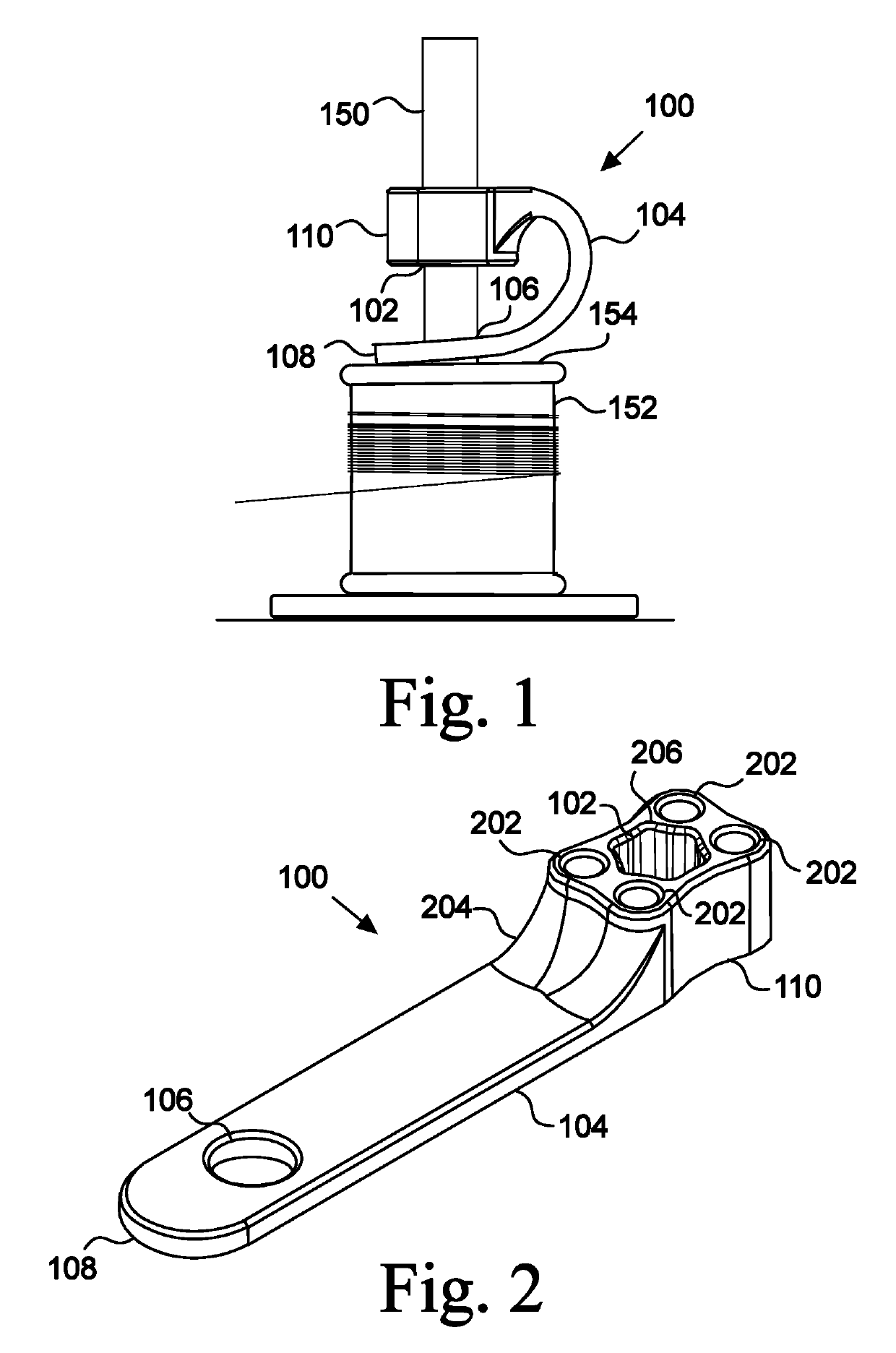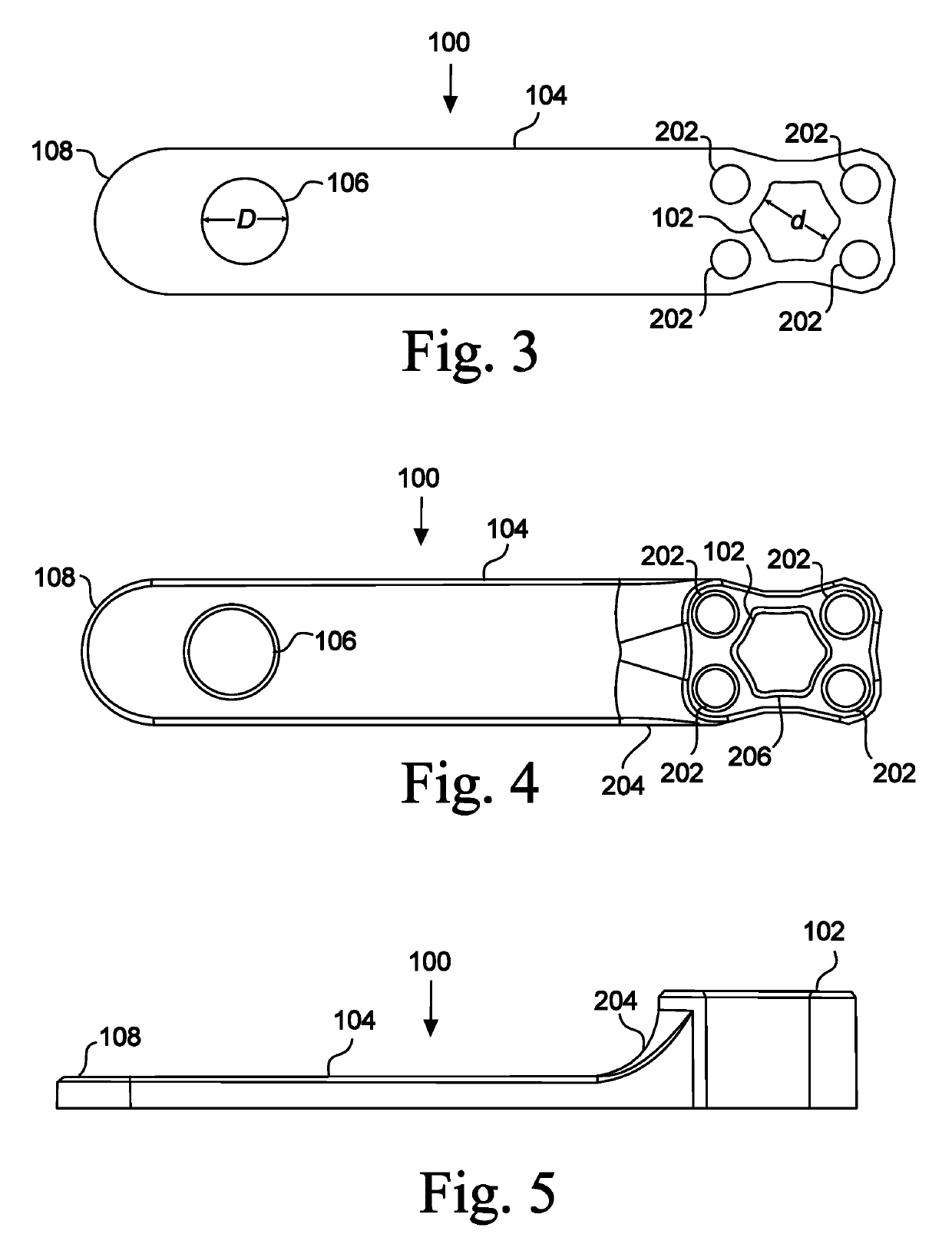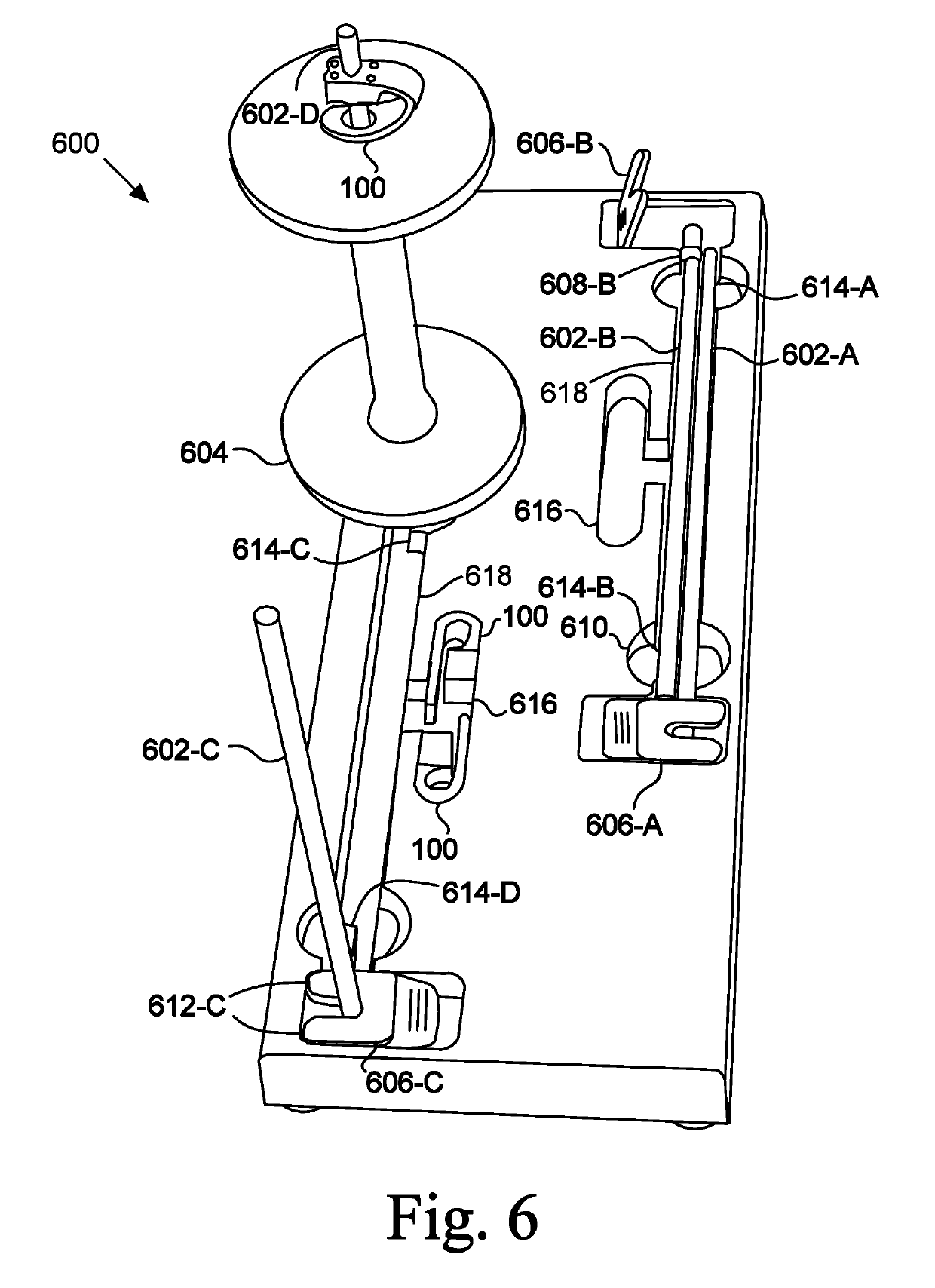Quick-adjust tensioner
a technology of tensioner and torque adjustment, which is applied in the field of quick adjustment of tensioners, can solve the problems of multiple torque adjustments of a standard tensioner, affecting the stability of the supporting rod, and unable to disclose the resilience of the straps connecting the heads
- Summary
- Abstract
- Description
- Claims
- Application Information
AI Technical Summary
Benefits of technology
Problems solved by technology
Method used
Image
Examples
embodiment 100
[0048]In the displayed embodiment 100, the biasing member 104 is resilient and has a bias to return to a straight position. Thus, reducing the distance between the stop 110 and the foot 108 will increase the spring force of the biasing member 104, thereby creating a greater braking torque of the foot 108 on the spool 152. Likewise, increasing the distance between the stop 110 and the foot 108 will reduce the force of the biasing member 104 pressing the foot 108 downward, and the braking torque on the spool 152 will be reduced. Thus, the user predetermines, in one way, the braking torque on the spool 152 by fixing the distance between the stop 110 and the foot 108.
[0049]FIGS. 2, 3, 4, and 5 illustrate an embodiment of the tensioner 100 in a rest position. In the displayed embodiment 100, the biasing member 104 is straight and flat when in a rest position. In other embodiments, the biasing member 104 is at rest in a curved position. In other embodiments, the biasing member 104 is in a...
embodiment 700
[0070]In FIG. 7, the stop 110 of the tensioner 100 grips the drive shaft 702 with a first static torque (i.e., a force resisting being rotated relative to the shaft). The biasing member 104 is pressing the foot 108 of the tensioner 100 against the spin sleeve 704. The downward force of the foot 108 on the spin sleeve 704 creates a second static torque holding the foot 108 and spin sleeve 704 in a fixed relative position. In the displayed embodiment 700, ridges 712 extend from the top of the spin sleeve 704 to catch against the foot 108 for extra traction. The second static torque is adjustable by increasing or decreasing the distance between the stop 110 and foot 108, thereby changing the force of the biasing member 104 against the foot 108. The maximum possible first static torque between the stop 110 and drive shaft 702 is greater than the second static torque between the foot 108 and spin sleeve 704—that is, if the drive shaft 702 and spin sleeve 704 were rotated in opposite dire...
PUM
 Login to View More
Login to View More Abstract
Description
Claims
Application Information
 Login to View More
Login to View More - R&D
- Intellectual Property
- Life Sciences
- Materials
- Tech Scout
- Unparalleled Data Quality
- Higher Quality Content
- 60% Fewer Hallucinations
Browse by: Latest US Patents, China's latest patents, Technical Efficacy Thesaurus, Application Domain, Technology Topic, Popular Technical Reports.
© 2025 PatSnap. All rights reserved.Legal|Privacy policy|Modern Slavery Act Transparency Statement|Sitemap|About US| Contact US: help@patsnap.com



